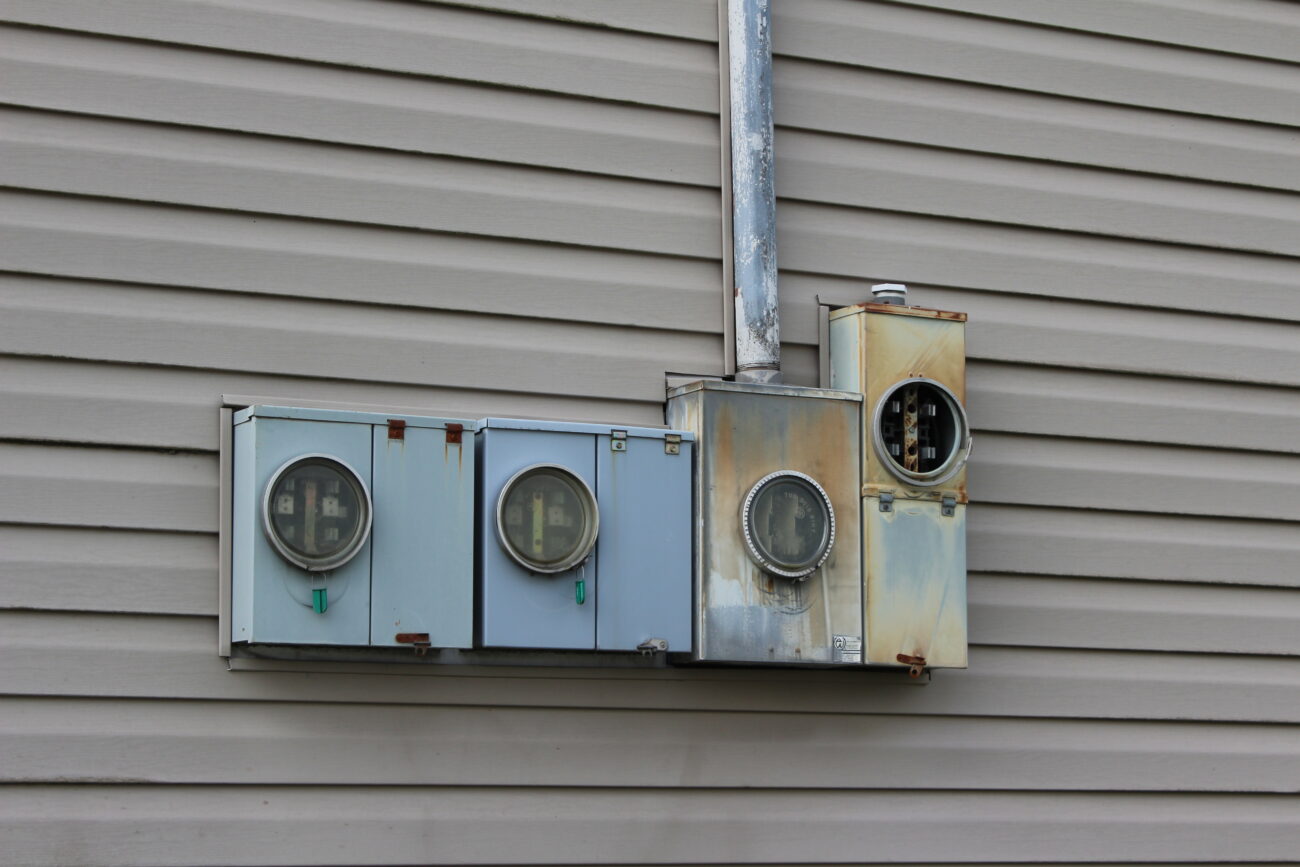
(Sage Smiley / KSTK)
Earlier this week, Wrangell put 60 electrical customers on notice: Pay their outstanding accounts in full, set up a payment plan, or the electricity would be shut off as early as next week.
Borough finance director Mason Villarma says that the goal isn’t to suddenly put people in need on the spot. Wrangell Municipal Light and Power has been sending out warnings for months, he says, but the recent yellow notices are a final warning.
“We’re not out to get people,” Villarma says, “But we want to establish a string of responsibility here and help people where we can. But at the same time, utilities aren’t free and the enterprise funds operate as a business in that sense. To be financially sustainable for the foreseeable future, this is a critical step.”
While the city doesn’t have the staff ability to go in-person to the residences that are behind on utility payments, Villarma says they’ve used every other means of contact to try and reach customers who are behind in paying bills: phone, social media, and snail-mail, in keeping with local electrical codes.
Notices were sent to the addresses of accounts that haven’t paid their bill for more than three months or owe more than $1,000 in back-utilities.
Together, the 60 accounts owe $78,000. Two-thirds of those — 40 account-holders — came in to pay their bills or set up payment plans as of Wednesday evening, Villarma said.
That’s in addition to $48,000 in unpaid electric bills from inactive electric accounts. Those unpaid bills will be sent to collections.
Altogether, that $120,000 of unpaid electric bills represents about 7% of the total annual revenue that the local electric utility makes on residential accounts, Villarma says.
Wrangell’s utility customers that have been behind on payments have been receiving disconnect warnings for months. That’s the electric bills printed on bright pink paper, informing users they’re late to pay. But the borough hasn’t acted on that threat of disconnect — until now.
Villarma couldn’t say when the last round of residential electricity shut-offs happened. But he says the lack of action against delinquents can’t continue.
Not making good on the threat of disconnects causes delinquent account balances to grow, for one. That did electric customers a disservice in the long run, he says, because it means that the bill becomes more and more difficult to pay.
The threat of power shut-offs has prompted some community backlash, as weather becomes wintry and Wrangell’s neighboring communities are seeing large spikes in COVID-19 spread. But the identities of those directly affected are kept confidential by the city for privacy purposes.
Villarma says there are some safeguards: for example, the public utility won’t shut off power when it’s below freezing, or if someone in the household relies on electricity for medical purposes.
“If somebody has a medical apparatus that’s dependent on power, or there may be a senior citizen that’s disabled or has some other contingency there, then those are special circumstances and obviously, we’re not shutting off the power for those people,” Villarma explains, adding: “That’s state statute as well.”
But he says none of the currently delinquent accounts are known to fall under this criteria.
Electricity disconnects are legally within the borough’s power. Alaska had a bill preventing utility shutoffs in the first few months of the pandemic, but that expired a year ago.
Villarma says disconnects are the last resort.
“The main thing, main point that I want to drive home is just for people to make the effort to come in,” Villarma says. “We’ll get you on a payment plan. No utilities disconnects have to happen. It’s just the people that we can’t get a hold of or they’re not responsive — those are the serious ones facing disconnection.”
Payment plans will require the electric customers to pay the past-due bills and ongoing bills within six months, plus the $20 disconnect fee and $20 reconnect fee.
Villarma says final notices will go out on November 5. If customers haven’t paid their bills or set up a payment plan, and the temperature in town is above freezing, disconnects will start as early as Monday (November 8).
Wrangell is pursuing grant funding from the Alaska Energy Authority to help address pandemic-related hardships that could make it hard for people to pay utilities.
Residents can also apply to Wrangell’s branch of the Salvation Army for grant-based utility assistance.
Get in touch with KSTK at news@kstk.org or (907) 874-2345.












